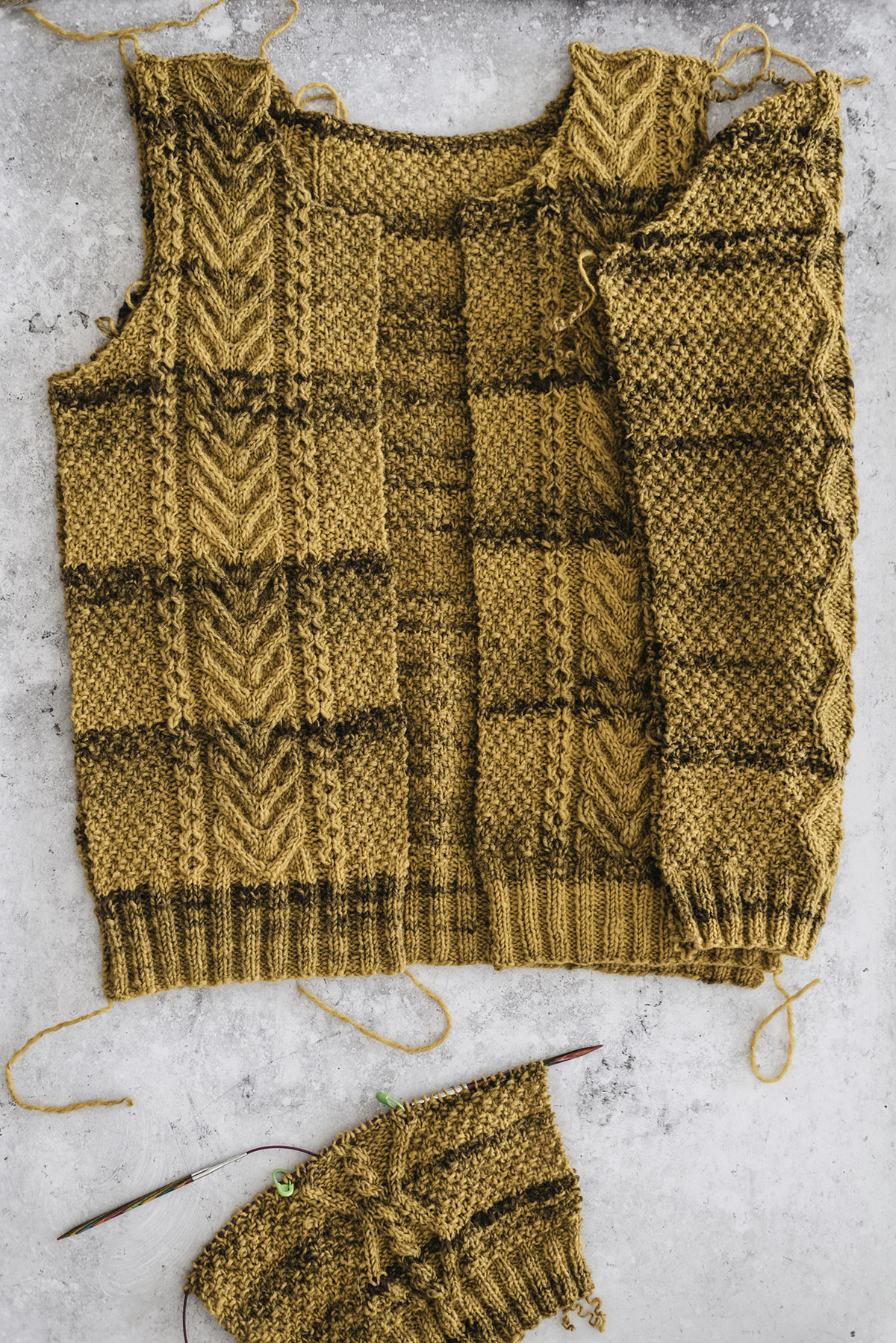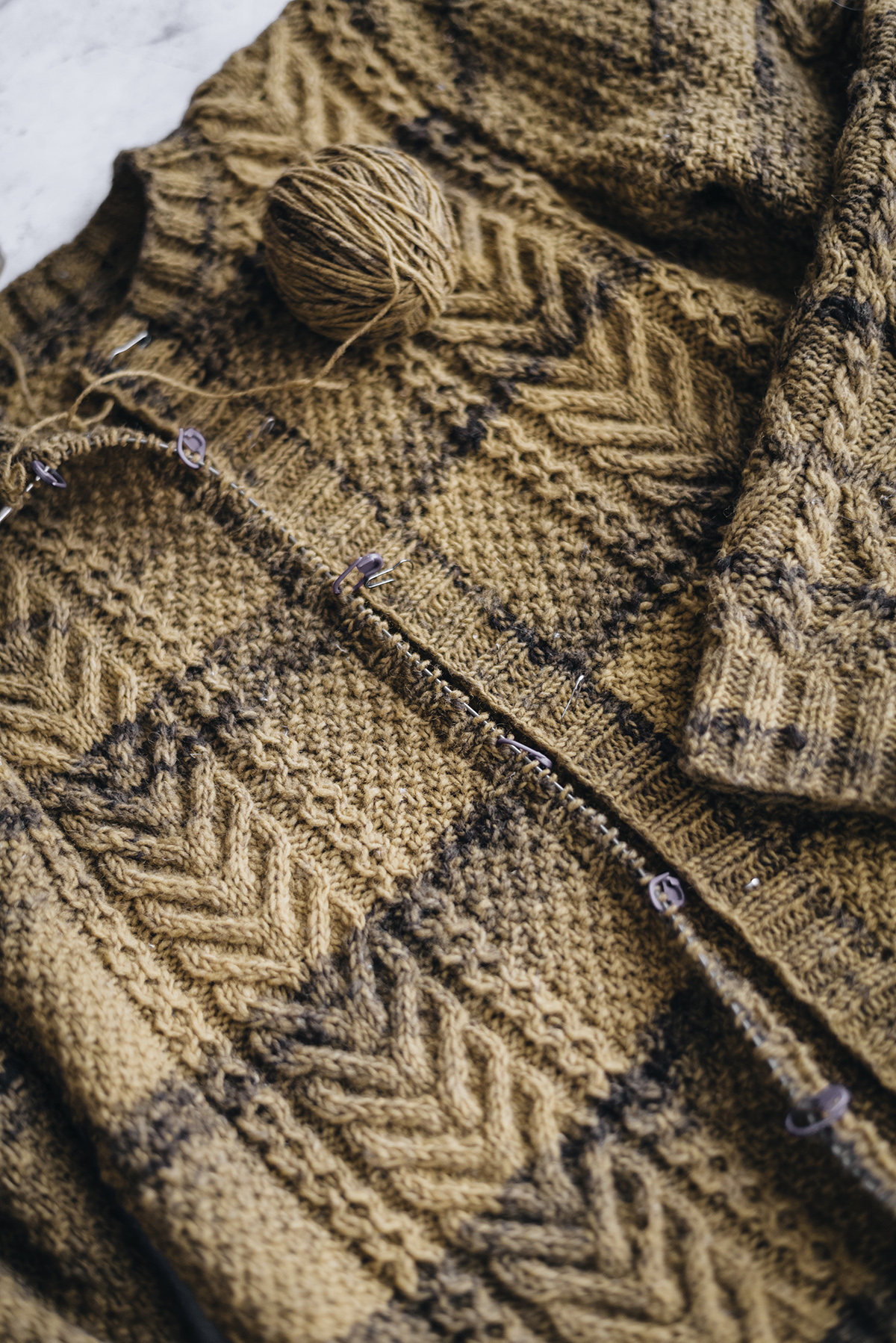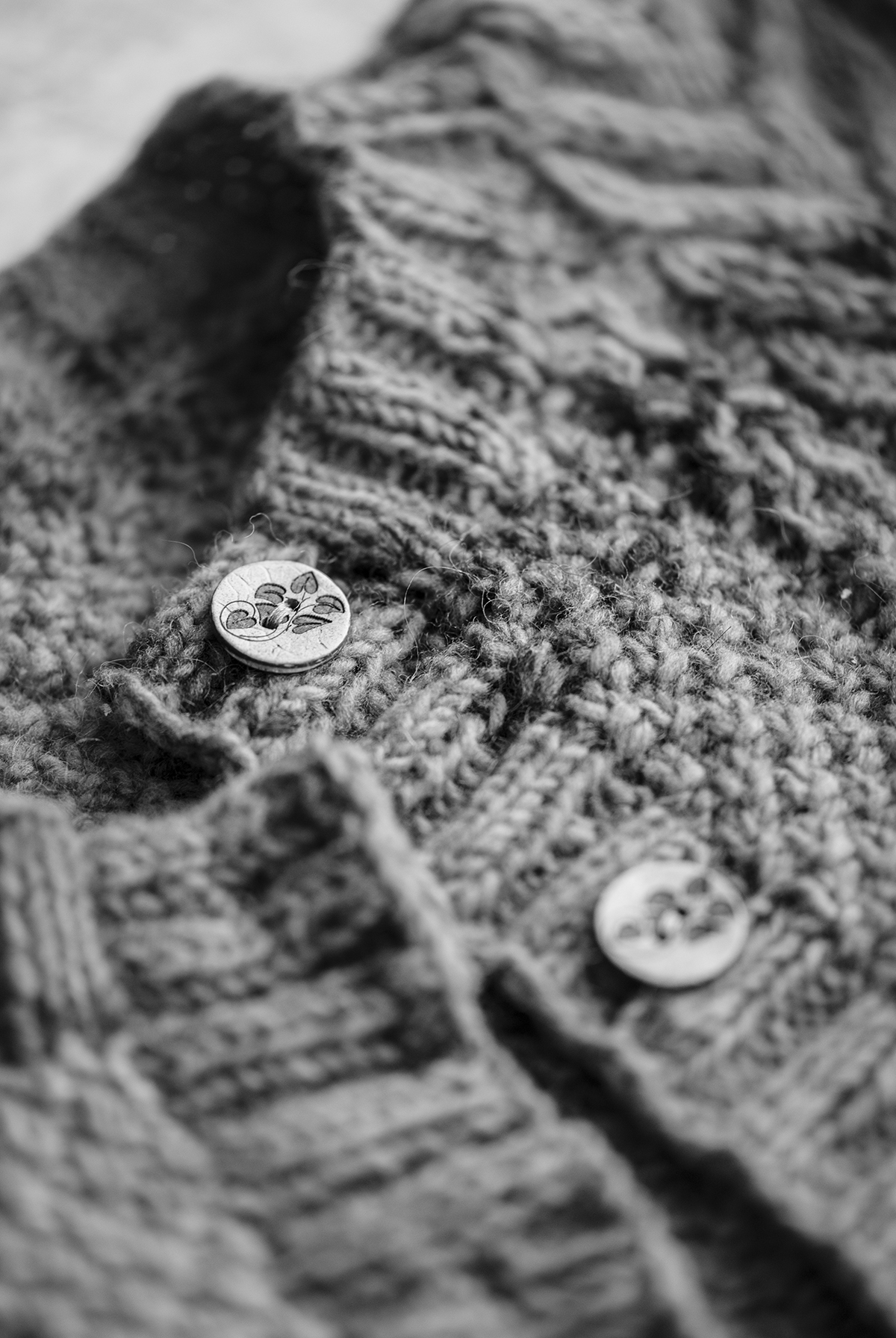Aran Cardigan
Cultivate the habit of being grateful for every good thing that comes to you, and to give thanks continuously. And because all things have contributed to your advancement, you should include all things in your gratitude. ― Ralph Waldo Emerson
One of my favorite stitches to knit is aran. I am passionate for the traditionally & classic aran garments full of textures, geometry and cables from Aran Islands, in Ireland.
A couple of years ago, when I bought the Japanese book Aran and Gansey, by the talented designer Yoko Hatta, I knew that during the course of the time I would be knitting most of the patterns present on the book. I started by knitting this sweater, which is one of my beloved pieces in my capsule wardrobe.
Then I made a scarf, then a hat and now I decided for a cardigan.
The construction method of this cardigan is knitted flat. I made small modifications on the length of the sleeves cuff and also on the ribbing, making them all shorter. For the collar, button band and buttonhole band I picked up the stitches. I didn’t make adjustments for the size though; the one presented on the book was just right for me after checking the gauge.
For this project I choose Beiroa from Retrosaria Rosa Pomar. Beiroa is a woolen spun from the fleece of bordaleira Serra da Estrela sheep, one of native Portuguese sheep breeds. The Beiroa blooms after being washed, becoming softer and relaxed. This single ply yarn has both thin and thick texture and some parts of the yarn are bare (brown wool) generating a stripped result. As a Portuguese knitter, knitting with the yarn around my neck, I always have the yarn tense and it never split, though it did split occasionally while I was seaming.
I used Beiroa in other projects before and I absolutely love this yarn. Besides choosing it for being good on its own it is an opportunity to also support a local business and the Portuguese wool industry. Retrosaria Rosa Pomar has already a range of yarns with Portuguese wool and I confess there are some that I am so eager to try. Especially the hand spun. It is important to notice that a few years ago the wool industry in Portugal was mostly in a state of worthlessness and the majority of the fleeces were wasted away and more often than not just burned and buried. Rosa Pomar was essential on the efforts to bring this industry back on its feet by revealing that these sheep have significance and distinctive qualities. Since many of the native sheep breeds of Portugal are endangered using their wool to make yarn is a way to safeguard the species and treasuring a natural & cultural heritage. And in a world that calls for sustainability & ethic using these kinds of local & natural resources is just the right choice.
I am really happy with this comfy mustard cardigan! Oh I am also delighted for at last give a home for these lovely buttons from coconut shell. I bought them a few years ago shortly after I started to knit.
I presume I will be knitting a few more aran garments, perhaps in white or undyed wool… That is something on my list for sure. ♥











